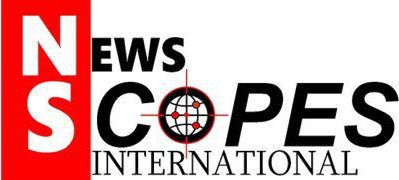“بعد الرمادية: لبنان على شفا اللائحة السوداء… هل ينجح في تفادي الكارثة؟”
بعد سلسلة من التحذيرات المتكررة من الجهات الدولية، تم إدراج لبنان على اللائحة الرمادية من قبل مجموعة العمل المالي (FATF). هذا الإدراج يعكس مخاوف كبيرة حول قدرة البلاد على الالتزام بمعايير مكافحة تبييض الأموال وتمويل الإرهاب. ويعد هذا الإجراء بمثابة تحدٍ كبير للاقتصاد اللبناني المتعثر، ما يثير مخاوف من انتقال البلاد إلى القائمة السوداء في حال عدم تنفيذ الإصلاحات الضرورية.
تداعيات اللائحة الرمادية على الاقتصاد اللبناني
يرى الخبير الاقتصادي أنيس أبو دياب أن إدراج لبنان على اللائحة الرمادية يمثل خطوة خطيرة تزيد من الضغوط على الاقتصاد اللبناني. فهذه الخطوة لا تسهم فقط في تعميق الأزمة، بل قد تجر لبنان إلى مخاطر أكبر في حال عدم تطبيق الإصلاحات الضرورية. الأزمة بدأت فعلياً في 2019 مع انهيار القطاع المصرفي، والذي أدى إلى تحول البلاد نحو اقتصاد يعتمد بشكل كبير على السيولة النقدية، مما قلل الثقة الدولية في النظام المالي اللبناني.
أهمية الإصلاحات لتجنب اللائحة السوداء
أبو دياب يشير إلى أن التأخير في تنفيذ الإصلاحات الضرورية، مثل مكافحة الفساد وضبط الحدود، ساهم في إدراج لبنان على اللائحة الرمادية. ومع ذلك، لا يؤثر هذا القرار بشكل مباشر على الأفراد، ولكنه يضع تحديات أمام التجار في فتح الاعتمادات المصرفية ويزيد من تكاليف الاستيراد، مما ينعكس سلباً على الاقتصاد.
من ناحية أخرى، إذا تم تنفيذ الإصلاحات، يمكن للبنان أن يتجنب الوقوع في القائمة السوداء، التي ستكون لها تداعيات كارثية على قدرة البلاد على جذب الاستثمارات الأجنبية. الاستثمار الخارجي يعتبر ضروريًا في هذه المرحلة الحساسة من أجل إعادة بناء الاقتصاد اللبناني.
الاستنتاج
يؤكد أبو دياب أن إدراج لبنان على اللائحة الرمادية ليس نهاية المطاف، ولكنه قد يكون مقدمة لوضع أكثر سوءًا في حال عدم تطبيق الإصلاحات المطلوبة. ويشدد على ضرورة الإسراع في انتخاب رئيس للجمهورية وتفعيل مؤسسات الدولة من أجل تنفيذ توصيات المجتمع الدولي وتجنب المزيد من الأزمات الاقتصادية.
المصدر: ليبانون ديبايت
Lebanon on the Brink of the Blacklist: Can It Avoid Disaster?
After years of international warnings, Lebanon has been placed on the Financial Action Task Force’s (FATF) grey list. This list includes countries under strict monitoring due to concerns over their efforts to combat money laundering and terrorism financing. The inclusion on this list is another major blow to Lebanon’s economy, which has been suffering from ongoing crises. Moreover, it raises the possibility of Lebanon being placed on the FATF’s blacklist if corrective measures are not taken.
Economic Impact of the Grey List on Lebanon
Economic expert Anis Abu Diab emphasizes that Lebanon's grey list status is detrimental to the country's already fragile economy. He explains that this development exacerbates existing challenges and could lead to more serious consequences unless immediate reforms are implemented. Lebanon’s banking sector collapse in 2019 marked the beginning of this crisis, leading to a reliance on cash-based transactions that undermined international confidence in Lebanon's financial system.
The Necessity of Reforms to Avoid the Blacklist
According to Abu Diab, Lebanon could have avoided its current situation by enacting anti-corruption measures and addressing issues like border smuggling. Although the grey list does not directly impact individuals, it creates obstacles for businesses, especially in opening banking credits, which could inflate the cost of imports and further stress the economy.
However, with the right reforms, Lebanon can steer clear of the FATF’s blacklist. Being blacklisted would have severe repercussions, particularly in deterring much-needed foreign investment. For now, international investors are wary of putting money into a country with high financial risks, which hampers Lebanon's recovery efforts.
Conclusion
Abu Diab believes that Lebanon's inclusion on the grey list is not the end of the road. However, it does serve as a warning. Without meaningful reforms, Lebanon could face the much harsher consequences of being blacklisted. Immediate action, including the election of a president and restoration of state institutions, is necessary for Lebanon to regain the trust of the international community and avoid further economic decline.
Translated by international scopes







